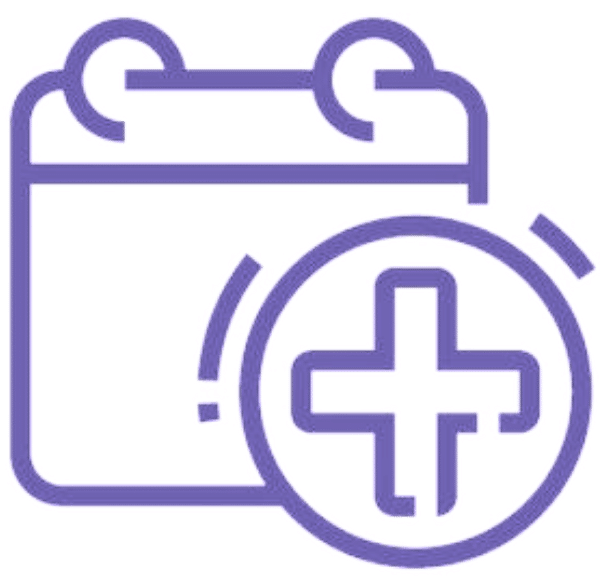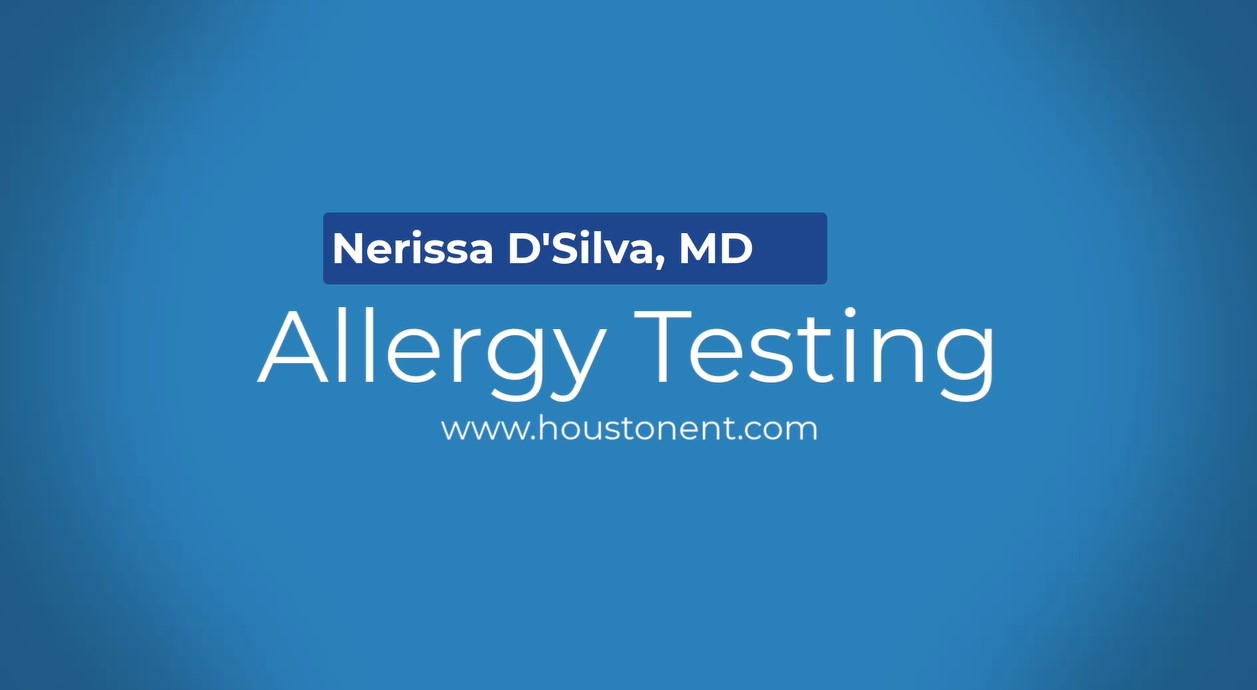Allergy treatment & testing in Houston
Providing solutions to all your family's allergy needs in a location near you.

Comprehensive care
Thorough allergy testing, accurate diagnosis, and customized treatment plans to manage symptoms and improve quality of life.

Family ENT and Allergists
Your allergy care is at the center of our focus. Your team of allergy experts will guide you through every step of the way.

Easy access
Convenient allergy appointment times and efficient testing and treatment options, so you can get the care you need when you need it.
Allergies can lead to misery, worsening symptoms, and decreased productivity.
Allergies can make you miserable. If left untreated, symptoms worsen, and your quality of life decreases. You may experience difficulty sleeping, fatigue, and reduced productivity. Additionally, allergies may increase your risk of developing asthma or sinus infections, which can lead to even more severe health issues.
Allergies affect your quality of life.
Unmanaged allergies lead to misery.
Allergies can worsen without treatment.
Allergies increase your health risks.
.png?width=900&height=600&name=Untitled%20(3%20%C3%97%202%20in).png)
Allergy Relief: Breathe easy, manage symptoms, & increase your quality of life.
You don't have to suffer from allergies anymore. You'll receive personalized allergy relief by our team of specialists. With our help, you can manage symptoms, improve your quality of life, and achieve your goals. We've successfully guided many patients to allergy relief, and we are here to help you do the same.
Book AppointmentConvenient Allergy Testing
With multiple locations and flexible scheduling options, you can get tested at a time and place that works best for you.
Customized treatment options
Your allergy profile is unique to you. That’s why you’ll receive a recommended treatment plan suited to your needs.
Regain control of your life
Allergies are a progressive condition. Regain the freedom of doing what you want, where you want, and when you want.
Get Relief From These Allergy Conditions in Houston

Allergic Rhinitis (Hay Fever) Treatment
Get relief in Houston from sneezing, nasal congestion, runny nose, and itching of the nose, eyes, ears, and throat.
3 Steps to Allergy Testing and Treatment
Allergy testing and treatment can be an effective way to manage and alleviate your allergy symptoms. Here's a breakdown of our 3-step process:
Schedule Your Appointment
Schedule a visit with our ENT doctors or Allergists to take the first step toward relief.
Evaluate and Treat Your Allergies
Your ENT doctor and Allergist will collaboratively evaluate your symptoms, provide a diagnosis, and recommend a treatment plan.
Experience Relief
Trust your ENT & Allergy specialist to tailor treatment to your needs. Live a healthier life & experience the relief you deserve.
What our patients are saying
"Dr. Mantravadi made me feel so welcome. She never rushed me, answered all my questions, and made sure I understood what was going on, as well as how allergies worked. Haven't had a doctor in a long time who made me feel appreciated. Highly recommend!"
Lauren H.
"My first experience here has been off the charts. Easy parking, no office building garage or elevator. Just walk right in. Extremely timely appointments with little to no waiting. The nurse and Dr Leonard were just wonderful - very caring, gentle, listened. Online paperwork before the appointment was also user friendly."
Natalie B.
"Dr Siddiqi is wonderful. Pays attention to details, explains results well, her focus is on the patient and getting real results. Finally hearing options to treat my kids that others have not mentioned and happy with the results."
Irene G.
Allergy Testing Treatment FAQs
Suffering from allergies can be a frustrating and uncomfortable experience. That's why we've put together a list of common questions about allergy treatment and testing.
How accurate is allergy testing via skin prick and intradermal testing vs blood testing in identifying the cause of my symptoms?
Skin prick testing: It is a widely used, cost-effective method with quick results. It has a high sensitivity, but false positives can occur.
Intradermal testing: This test is more sensitive than skin prick testing and can help detect allergies missed by the skin prick test. However, it has a higher risk of false positives and may cause more discomfort.
Blood testing: Blood tests, such as ImmunoCAP or ELISA, measure allergen-specific IgE levels in the blood. They are less sensitive than skin tests but are useful for people who cannot undergo skin testing due to skin conditions, medications, or risk of severe reactions.
No single test is 100% accurate, and a combination of tests and medical history analysis may be needed to identify the cause of your symptoms. It's essential to consult with an allergist or healthcare professional to determine the most appropriate testing method for your situation.
How effective are allergy treatments?
Allergen immunotherapy: Also known as allergy shots or sublingual immunotherapy (SLIT), this treatment involves gradually exposing the immune system to small amounts of the allergen to build tolerance. Immunotherapy can be highly effective for many people, reducing symptoms and the need for medication.
What are the side effects of antihistamines?
Common side effects of first-generation antihistamines include:
- Drowsiness or sedation
- Dry mouth, nose, and throat
- Blurred vision
- Difficulty urinating or urinary retention
- Constipation
- Dizziness
- Confusion, especially in older adults
Second-generation antihistamines are less likely to cause drowsiness and other side effects, but some people may still experience mild side effects such as:
- Headache
- Dry mouth
- Nausea
- Dizziness
- Fatigue
Are allergy shots covered by insurance?
Yes, many insurance plans consider allergy shots as a medically necessary treatment for individuals with allergies that are not well-managed through medication or avoidance measures.
Are allergy tablets and drops as effective as allergy shots?
Allergy tablets and drops, also known as sublingual immunotherapy (SLIT), are an alternative to allergy shots (subcutaneous immunotherapy, or SCIT) for treating allergies. SLIT involves placing a tablet or drops containing a small amount of the allergen under the tongue, where it is absorbed by the immune system. Both SCIT and SLIT work by gradually increasing allergen exposure to build tolerance and reduce allergic symptoms.
In general, SLIT is considered to be less effective than SCIT, but it is still a viable treatment option for certain allergies. SLIT has been shown to be effective for treating allergic rhinitis (hay fever) and allergic asthma caused by pollen, dust mites, and pet allergens.
However, SLIT is currently approved only for a limited number of allergens, unlike SCIT, which can be tailored to treat a wider range of allergies. Additionally, the results of SLIT can vary among individuals, and some people may respond better to SCIT than to SLIT.
A key advantage of SLIT is that it can be self-administered at home, which can be more convenient and less invasive than receiving allergy shots. It's important to consult with an allergist or healthcare professional to determine the best treatment option for your specific allergies and circumstances.
Free Resources to Help You Understand ENT & Allergy Services
Looking to understand more about our ENT, allergy, and audiology services? We provide free resources to help you learn more and make informed decisions about your healthcare needs.
ENT & Allergy Care Relief When You Need It
You can expect a dedicated allergy team to provide you with the highest quality care for allergies and help you achieve the relief you deserve. Get personalized care and comprehensive service for you and your loved ones by booking an appointment today



